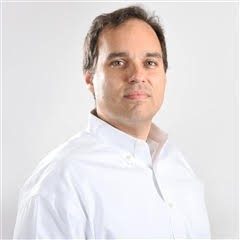“What are we doing? What can we do?” These are the questions I have been asked persistently over the last three weeks.
What happened to Breonna Taylor, George Floyd and many others has rightly awakened our country to the extent of racial animosity towards African Americans from positions of power.
It started with police and a call to investigate and re-examine our entire criminal justice system, but it is now addressing fundamental inequities in housing, business, education and health care.
We should ask for justice for Breonna Taylor. We should also ask why so many homes in Russell are boarded up; why drug abuse is rampant in the West End; why health and education outcomes are disproportionately worse there; why there are so few black-owned businesses and why large swaths of black neighborhoods are food deserts.
The Jewish Community Relations Council recently hosted a webinar for young people. Moderated by Judge Derwin Webb, the panel included three professional athletes and West End natives: Jamon Brown, Reggie Bonnafon and Larry O’Bannon. They talked about growing up in the West End and how it shaped who they were.
Their comments were fascinating. They gave our young people a particular understanding of growing up black in America.
One example they all mentioned that opened our eyes was how they described “The Talk,” a conversation all African American families must have when their young men reach a certain age about how to behave when confronted by the police. For us in the Jewish community unaware of this necessary conversation, it really opened our eyes. We see the police as protectors who guard our institutions every Shabbat and holiday. That’s very different from the way the black community sees them. We need to internalize this.
When the panelists were asked what we can do, they said educating ourselves to these issues is the most important first step.
Another webinar hosted by Jewish Federations of North America featured Bakari Sellers, a CNN contributor, who moderated a discussion with two other leaders in the African American community. They prescribed what should be done to address systemic racism: self-reflection and education.
We are often ignorant of the real-world effect of structural racism, these panelists said. They said we need to participate in government by voting, funding candidates who are addressing these issues, fight voter suppression and advocate for change legislation.
Finally, they said we need to participate in the census.
We have a proud history of supporting equal rights for the black community. Jews were distinctively active in the civil rights movement. Jewish individuals helped desegregation right here in Louisville. Our own Jewish Hospital was one of the first in the country to allow black doctors to train.
But we also must admit our work in recent years on civil rights has not lived up to our history. Now is the time to re-dedicate ourselves to the fight for racial justice.
We will continue to educate our community on these issues.
We will continue to stand with the local African American community in their demands for justice. We will get out the vote and hold candidates and elected officials responsible for addressing all the manifestations of structural inequalities that exist.
We know what our holy books and traditions demand and we must be “in this” for as long as it takes. This is a movement not a moment.
(Matt Goldberg is the director of the Jewish Community Relations Council.)



